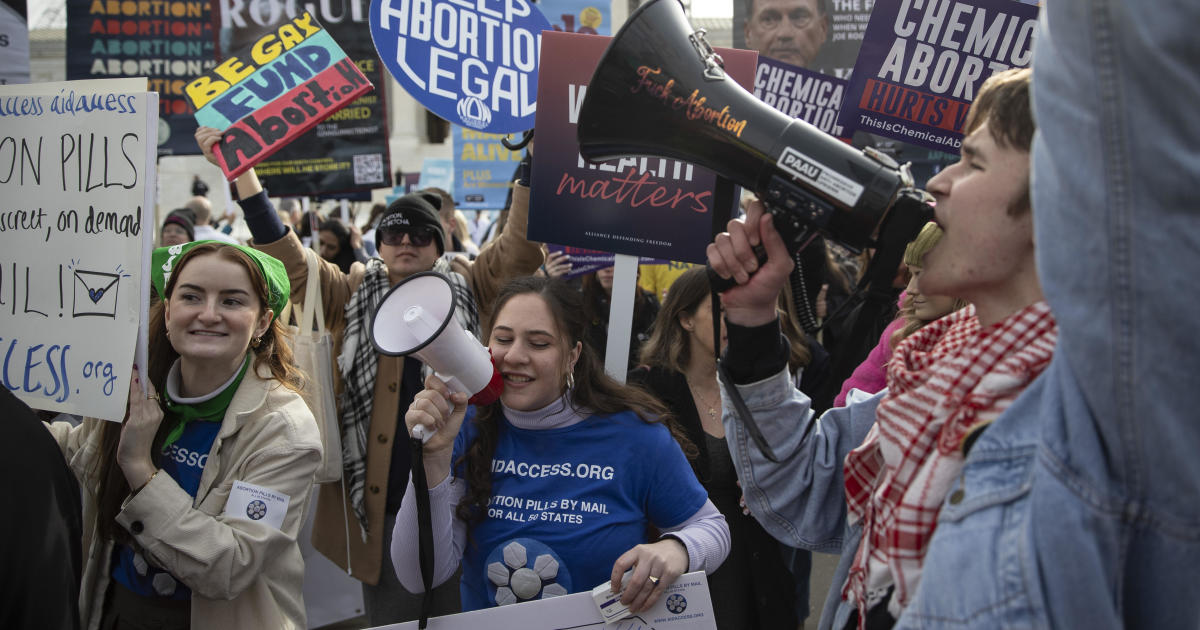The Supreme Court made a significant decision on Thursday regarding the availability of the widely used abortion pill, mifepristone. This ruling, the first major abortion-related decision since the reversal of Roe v. Wade, preserved access to the drug by rejecting a challenge brought by a group of anti-abortion rights doctors and medical associations.
The unanimous ruling from the justices was based on procedural grounds, determining that the plaintiffs did not have the legal standing to challenge the FDA’s actions regarding mifepristone. This decision did not address the legality of the FDA’s actions but focused on the lack of standing of the plaintiffs to bring the lawsuit.
Justice Brett Kavanaugh, writing for the court, stated that the plaintiffs’ desire to restrict access to the drug for others did not establish standing to sue. The decision means that the FDA’s recent steps to ease restrictions on mifepristone, such as allowing it to be taken later in pregnancy and removing in-person dispensing requirements, will remain in place.
Three states – Idaho, Kansas, and Missouri – attempted to intervene in the case before the Supreme Court but were denied. However, they were allowed to join the suit at the district court level. The lawyer representing the doctors, Erin Hawley, expects the litigation to continue with these states raising different standing arguments.
The dispute brought by the anti-abortion rights doctors was the first abortion-related case heard by the Supreme Court following the overturning of Roe v. Wade. If the challengers had succeeded, it would have restricted access to mifepristone nationwide, even in states where abortion is legal.
Mifepristone, approved by the FDA in 2000, is used in combination with misoprostol to terminate early pregnancies. The drug has been taken by over 5 million patients with rare adverse events reported. Medication abortions accounted for more than half of all abortions in the U.S. health care system in 2023.
The lawsuit filed by the doctors alleged that the FDA did not have the authority to approve mifepristone for sale in the U.S. and did not adequately consider its safety and effectiveness. The FDA’s actions in 2016 and 2021 made the drug more accessible by extending the pregnancy period for its use, reducing in-person visits, and expanding the pool of healthcare providers who could prescribe it.
A federal judge initially blocked the FDA’s approval of mifepristone and its subsequent actions, but the Supreme Court’s decision to maintain access to the drug overturned this ruling. The U.S. Court of Appeals for the 5th Circuit later upheld the FDA’s approval but found that the agency likely violated the law with its rule changes.
Pharmaceutical companies and former FDA officials warned that a ruling against the drug agency could have far-reaching implications for other medications beyond abortion. The decision to maintain access to mifepristone was seen as a victory for the stability of the FDA’s drug approval process.
Since the Supreme Court’s decision to roll back abortion rights, many states have imposed strict bans on the procedure, limiting access to abortion. The Biden administration has taken steps to expand access to medication abortion, including allowing more retail pharmacies to dispense abortion pills.
In his statement following the ruling, President Biden emphasized that the fight for reproductive freedom continues despite the decision. The attorney representing the doctors expressed disappointment with the outcome but vowed to continue advocating for women’s health and safety.
Overall, the Supreme Court’s decision to reject the challenge against mifepristone ensures that access to the drug remains open and that the FDA’s recent regulatory changes will continue to benefit patients and healthcare providers.









